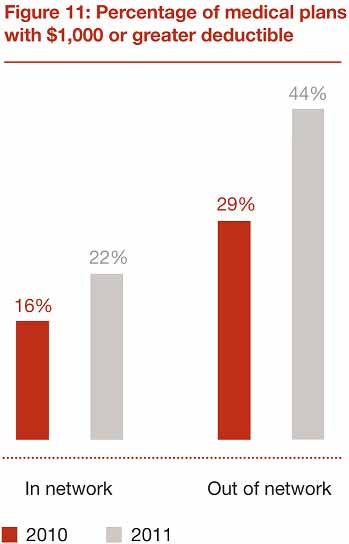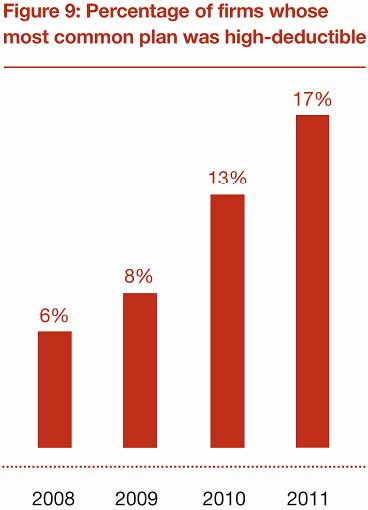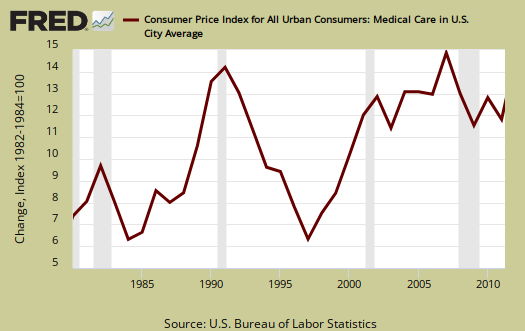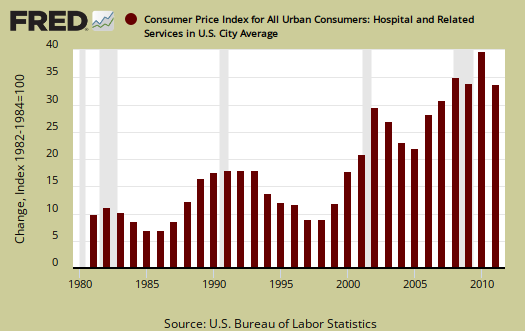PricewaterhouseCoopers has a new report projecting health care costs to rise 8.5% in 2012 and 8% in 2011.

Insurance policies will have higher deductibles and less coverage, what the report calls a cost deflator. Obviously that's not deflator to you.
One of the most damning conclusions of the report is how health care reform is projected to have minimal impact on health care costs for 2012.
Providers are consolidating, providing less competition. Employer plans are using even higher deductibles, dumping the costs onto you. Medical services are now getting less from Medicare, 3.3% increases for 2012, so as usual, to make up the difference, these providers are dumping their losses by jacking up prices for the rest of us.

Even worst, they are projected a dramatic increase in stress related health care costs. Yes, losing your home and job affects your health.
Below is the CPI index annual change for health care costs:

and hospital related services CPI annual change:

Recent comments